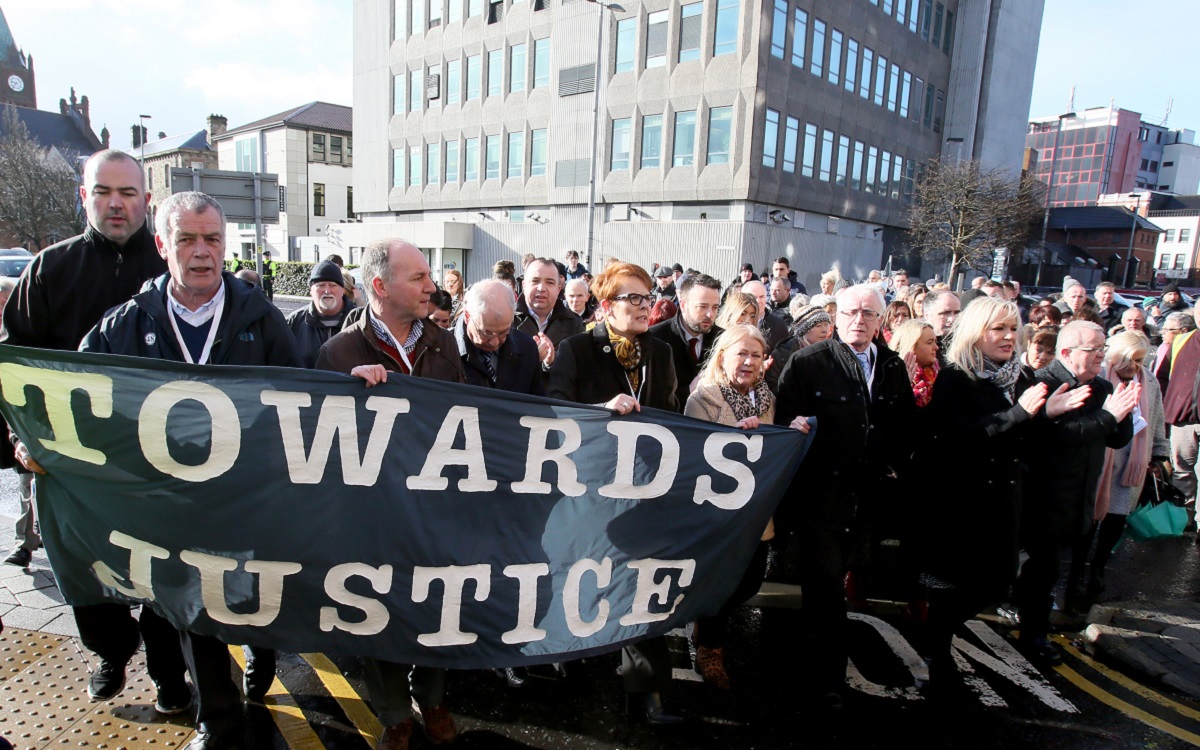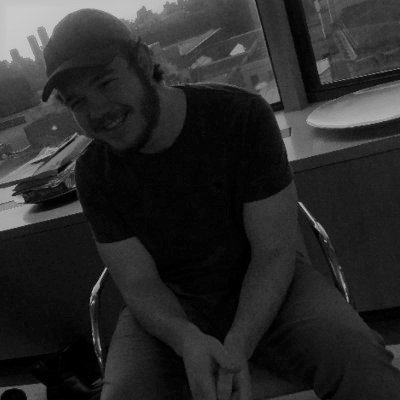
I was born a few months after the signing of the Good Friday Agreement, which essentially ended Northern Ireland’s civil war and ushered in an era of peace that has yet to be broken. Moreover, during my lifetime, Northern Ireland has dramatically changed from an impoverished and war-torn backwater into a relatively prosperous and stable part of Western Europe.
The Northern Ireland that I know is unrecognizable from the Northern Ireland in which my mother and her generation grew up. The bullet holes of Belfast have been plastered over to create a modern European city, at times indistinguishable from those of Germany or France.
However, Northern Ireland’s economic facelift still fails to hide the legacy of sectarian conflict. The power-sharing agreement stipulated in the Good Friday Agreement has led to a political system that faces constant deadlock and dysfunction. The social divide between Catholics and Protestants also continues to be a major hurdle, as only around 7 percent of Northern Irish children attend religiously integrated schools.
Sectarianism and power-sharing
Northern Ireland went through a period of violent sectarian conflict, known as the Troubles, which began in the late 1960s and ended in 1998, though some violence has occurred since then. The British Army intervened in 1969, as communal violence between Catholics and Protestants had broken out across the territory. The vast majority of Catholics, who were discriminated against and forced into poverty, supported a united Ireland, while the vast majority of Protestants supported the continuation of the union with Great Britain. The conflict ended with a power-sharing agreement that created a system in which Catholic nationalists and Protestant unionists had to build consensus in order to advance any political objective.
This recent history is quite similar to other societies defined by ethno-sectarian divisions, such as Bosnia and Herzegovina or Iraq. What makes Northern Ireland and Lebanon so starkly related is the nature of their respective post-conflict political orders, in which power-sharing between ethnoreligious groups is the foundation for their politics.
Though Lebanon’s sectarian political system is somewhat more rigid and complex than Northern Ireland’s, their governments experience the same variety of political impasses. Since 1999, Northern Ireland’s mandated coalition has collapsed five times, with the most recent political spat in 2017 leading to a 3-year long breakdown in Northern Ireland’s government. Anyone familiar with Lebanese politics will immediately recognize the similarity.
What makes Northern Ireland and Lebanon so starkly related is the nature of their respective post-conflict political orders, in which power-sharing between ethnoreligious groups is the foundation for their politics.
However, the interesting distinction between Northern Ireland and Lebanon, is that Northern Ireland’s political dysfunction has not translated into renewed sectarian conflict or economic turmoil like it has in Lebanon. Though foreign journalists have a bad habit of portraying Northern Ireland’s contentious politics as a sign of impending sectarian violence (especially since the UK’s decision to leave the European Union), the reality is far more mundane.
The conditions for conflict and insurgency are no longer present within Northern Irish society, and this aligns with contemporary research on insurgency and civil war. Despite the fact that Britain’s security apparatus and infrastructure in the territory has greatly improved in the last 20 years, the general population enjoys a quality of life that is just too high to foment conflict. Simply put, the average person in Northern Ireland would not give up their relatively cushy life to go and fight the government or the opposing sect. Though violence occasionally occurs, it is generally limited to riots that rarely last for more than a day or two.
So, why is this the case?
Though there are likely a myriad of reasons, it is most important to focus on the separation of economic development and political dysfunction in Northern Ireland as well as the role of foreign powers in its politics. Peace and stability in Northern Ireland did not necessarily come from the political settlement agreed upon in 1998, but larger economic factors that were occurring in post-Cold War Europe and reforms in Northern Ireland’s economy. In addition to this, foreign powers involved in the conflict were, for the most part, all geopolitical allies.
The settlement that ended Lebanon’s civil war, the Taif Agreement, also brought with it major economic development to rebuild the country, especially Beirut. However, this development did not remedy social inequality like it did in Northern Ireland. Alongside this, the foreign powers involved in Lebanese politics do not share the same geopolitical goals, and have used Lebanon as a stage for larger regional conflict.
In short, Northern Ireland has enjoyed more evenly-distributed capital and healthier relationships with its neighbors, thus allowing it to ascend to its current social and economic position.
Shortly after the fall of the Soviet Union, the European Union began to take shape, and, following the ideals of the burgeoning neoliberal world order, trade and commerce became ubiquitous across the continent. The formation of the EU in 1993 allowed for the free flow of people and capital in the region, which benefited Europe’s poorest countries the most.
Indeed, Northern Ireland’s geographic location is likely the most important aspect of its post-conflict social and economic development.
In the Republic of Ireland, this flow of capital and direct investment supercharged the Irish economy, leading to a period of rapid economic growth known as the “Celtic Tiger.” Ireland quickly transformed from one of Western Europe’s poorest nations, to one of its wealthiest. And economic prosperity inevitably crossed the border into Northern Ireland, as Britain and Ireland’s entry into the EU saw the removal of the militarized barrier between the two.
The United States and the EU played an important role in mediating a resolution to the conflict and encouraging economic development that pulled Northern Ireland’s most vulnerable communities out of extreme poverty.
By the mid-1990s, economic disparities between Catholics and Protestants in Northern Ireland began to significantly converge, as reforms in education and labor policy created a fairer distribution of wealth. This trend continued into the 2000s, and the people of Northern Ireland quickly began to enjoy a quality of life that large segments of the population (particularly the Catholic community) had never experienced, greatly diminishing the gargantuan economic inequality that had plagued the region for generations.
Alongside this, the foreign powers involved in Northern Ireland were always on the same page regarding its conflict, though there was (and still is) a good degree of variance. Moreover, the United States and EU played an important role in mediating a resolution to the conflict and encouraging economic development that pulled Northern Ireland’s most vulnerable communities out of extreme poverty.
In contrast, Lebanon’s post-conflict economic recovery did not amend the social inequalities that ignited conflict in the first place. Though large amounts of foreign capital poured into Beirut in the 1990s and 2000s, it only benefited a small portion of Lebanese society. Additionally, said capital mainly went into banking, real estate, and tourism, neglecting agriculture and industry, which could have been (and still can be) drivers in amending inequality. This, of course, all came to a head in 2019, when Lebanon’s current economic crisis began.
In addition to the mismanagement and greed of Lebanon’s political elite, the country has been the stage for regional and global competition since the 1950s. Foreign powers have been unable to resist the temptation of meddling in Lebanese affairs, which has had a catastrophic impact on the country’s development and stability.
In recent years, the rivalry between Saudi Arabia and Iran has been the most impactful on Lebanon’s politics and economy, but Western powers have not improved the situation either. Indeed, the West has continually propped up Lebanon’s toxic political establishment since its foundation.
Lessons to draw
Unfortunately for Lebanon, it cannot grow legs and move to a less volatile part of the world, and even then, that would only solve one aspect of its problems. Foreign powers, namely the United States, the Gulf countries, and Iran, must come to some sort of agreement on Lebanon’s future.
Though ending foreign interference will not resolve the root causes of Lebanon’s political and economic dysfunction, those being sectarianism, inequality, and corruption, it could improve the lives of the Lebanese people and set the conditions for a new political order.
The Gulf countries have already been attempting at thawing tensions with Iran in recent months, and it is necessary that this possible regional detente also covers Lebanon. With foreign powers coming to some sort of understanding regarding Lebanon’s fate, the country may be able to make positive steps towards a fairer and more just society in time. Though, as of right now, the Gulf countries seem pretty set on their current position regarding the country.
Overall, economic and social inequality must be viewed as an existential threat to Lebanon’s integrity as a viable state. Much like the formation of Catholic paramilitaries during the Troubles in Northern Ireland, groups such as Hezbollah would not have had such fertile ground to grow if the Shiite population had not been in such a marginalized position within Lebanese society, which allowed it to become dependent on the Iran-backed faction. Remedying inequalities is a gargantuan task for any nation, but it is particularly important for Lebanon to move forward.
As Northern Ireland clearly demonstrates, solving internal political dysfunction is a long-term issue that must be achieved by the population on its own. No foreign power is capable of fixing Lebanon’s fractured society.
However, political deadlock does not need to necessarily make life in the country unlivable, as it is quickly becoming. Though the current situation is quite bleak, and things will likely get worse, Lebanon can still have a future if its powerful neighbors reach an agreement regarding its fate.
David Isaly is a Beirut-based journalist and researcher. His work can be found on substack and tweets @DEyesalli.








